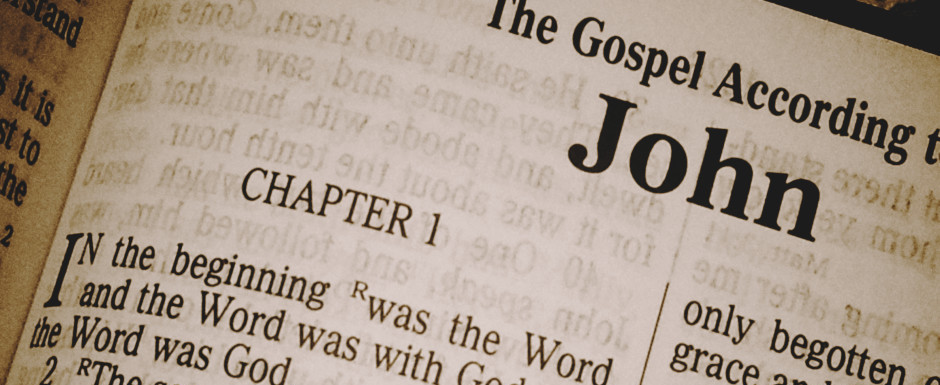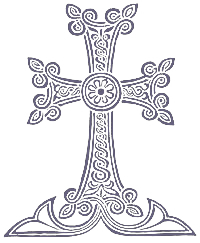Sunday of the Judge

THE SUNDAY MESSENGER
March 22, 2020
Sunday of the Judge
Gospel Reading
Luke 17:20-18:14
Being asked by the Pharisees when the kingdom of God was coming, he answered them, “The kingdom of God is not coming with signs to be observed; 21 nor will they say, ‘Lo, here it is!’ or ‘There!’ for behold, the kingdom of God is in the midst of you.” 22 And he said to the disciples, “The days are coming when you will desire to see one of the days of the Son of man, and you will not see it. 23 And they will say to you, ‘Lo, there!’ or ‘Lo, here!’ Do not go, do not follow them. 24 For as the lightning flashes and lights up the sky from one side to the other, so will the Son of man be in his day. 25 But first he must suffer many things and be rejected by this generation. 26 As it was in the days of Noah, so will it be in the days of the Son of man. 27 They ate, they drank, they married, they were given in marriage, until the day when Noah entered the ark, and the flood came and destroyed them all. 28 Likewise as it was in the days of Lot—they ate, they drank, they bought, they sold, they planted, they built, 29 but on the day when Lot went out from Sodom fire and sulphur rained from heaven and destroyed them all— 30 so will it be on the day when the Son of man is revealed. 31 On that day, let him who is on the housetop, with his goods in the house, not come down to take them away; and likewise let him who is in the field not turn back. 32 Remember Lot’s wife. 33 Whoever seeks to gain his life will lose it, but whoever loses his life will preserve it. 34 I tell you, in that night there will be two in one bed; one will be taken and the other left. 35 There will be two women grinding together; one will be taken and the other left.” 37 And they said to him, “Where, Lord?” He said to them, “Where the body is, there the eagles will be gathered together.” And he told them a parable, to the effect that they ought always to pray and not lose heart. 2 He said, “In a certain city there was a judge who neither feared God nor regarded man; 3 and there was a widow in that city who kept coming to him and saying, ‘Vindicate me against my adversary.’ 4 For a while he refused; but afterward he said to himself, ‘Though I neither fear God nor regard man, 5 yet because this widow bothers me, I will vindicate her, or she will wear me out by her continual coming.’” 6 And the Lord said, “Hear what the unrighteous judge says. 7 And will not God vindicate his elect, who cry to him day and night? Will he delay long over them? 8 I tell you, he will vindicate them speedily. Nevertheless, when the Son of man comes, will he find faith on earth?” 9 He also told this parable to some who trusted in themselves that they were righteous and despised others: 10 “Two men went up into the temple to pray, one a Pharisee and the other a tax collector. 11 The Pharisee stood and prayed thus with himself, ‘God, I thank thee that I am not like other men, extortioners, unjust, adulterers, or even like this tax collector. 12 I fast twice a week, I give tithes of all that I get.’ 13 But the tax collector, standing far off, would not even lift up his eyes to heaven, but beat his breast, saying, ‘God, be merciful to me a sinner!’ 14 I tell you, this man went down to his house justified rather than the other; for every one who exalts himself will be humbled, but he who humbles himself will be exalted.” (Revised Standard Version)
Background
The judge has no respect for people or their rights. His decisions as a judge have nothing to do with justice or compassion, not even for a poor and defenseless widow. He only grants her persistent request in order to avoid being further annoyed. The judge in the parable is not meant to be an allegorical representation of God, but a contrast between a corrupt/unjust judge and a holy/just Judge. If this judge, as heartless as he is, and perhaps for the wrong reasons grants her request, how much more will God, our loving Judge, listen and care if he is both just and good?
Keep in mind the discourse that precedes this parable: the coming of the Kingdom in the present and in its fulfillment. We must be in a constant state of readiness, which includes ceaseless and faithful prayer. To be ready is to be doing, praying – always. Our constant source of busy-ness, rather than what typically dominates our day, should be prayer and acts of mercy (large or small). That is the fulfillment of our existence as worshipping beings created for communion with God and with one another. Jesus is looking for a particular faith on earth, and through the persistent widow, he gives us clues as to how it is characterized.
The Widow’s Prayer
In the parable of the Unjust Judge, what are the characteristics of the widow and her prayer that Jesus wants us to notice and apply to our own lives? As the widow continually pleads her case to the judge, Jesus, in this particular story, seems to significantly draw out the need for and importance of ceaseless prayer. St. Paul echoes this when he informs us as to God’s will:
Rejoice always, pray constantly, give thanks in all circumstances; for this is the will of God in Christ Jesus for you. (I Thessalonians 5:16-18)
Prayer that is offered continually also demonstrates prayer that is grounded in faith, in a spirit of complete dependence, and offered from a heart of humility. Furthermore, that this parable follows a discourse on the arrival of God’s kingdom and the tribulation that comes with it, uninterrupted prayer indicates a sense of urgency, that our faith and salvation is a matter of life and death.
The end of all things is at hand; therefore keep sane and sober for your prayers. (I Peter 4:7)
Are we aware of our spiritual state without God? If the result of sin is death (Romans 6:23), and God is the forgiver and healer of our sinful condition, then how do we spend our time? How often and about what do we pray? How often do we participate in the prayer that is our Badarak, which is not only a love song to our Lord, but a request, a pleading before our Judge for salvation, for life! During Badarak, the priest turns toward the people, raises the chalice and says, “Sa eh gyank, hooys, harootyoon, kavootyoon, yev toghootyoon meghats,” proclaiming the Body and Blood of Jesus Christ to be “Life, hope, resurrection, purification, and remission of sins.” Do we take these things for granted, or do we believe them to be optional? Imagine a world in which we didn’t have life, hope, resurrection, or purification of sins. In other words, these are just a few things on the list of urgent necessities for our well-being. Read the rest of the Badarak to find more. Thus, sharing Holy Communion is not an option, but medicine for life. To be like the widow in this story is to be aware of the urgency of our sinful condition and to know to whom we need to turn for healing and salvation.
Perhaps in certain moments all we can utter is the sound of our own ego, and thankfully, God even listens to that. But he is looking for a rare faith on earth, and prayer as a profession and cultivation of our faith is an opportunity for us to proclaim God’s mercy and love, to recommit ourselves to our Creator, both individually, and communally as the Church. Every time we pray we are confessing yet again our faith in the risen Lord and his promise of eternal life.
How do our prayers reflect our faith and inspire true repentance? What kind of content dominates our prayer? Does the Church’s liturgical prayer (Badarak, Zhamerkootyoon) awaken our faith? (How can we allow God to reach us through the obstacle of language?) The ideal is to create a habit of prayer, where repentance, praise, and reorienting ourselves toward God become a natural and regular part of our lives.
St. Gregory of Narek, as always, gives us a model of how to pray or plead before God just as the persistent widow did:
O compassionate Lord who loves mankind, almighty God, as you consider these words of pleading, treat them as a confession from a contrite soul fallen at your feet in repentance. And as you judge, note and weigh the tearful soul, the heaving sighs, the quivering lips, the dry tongue, the clenched face, the good will in the depth of the heart, you who are the salvation of humanity, the seer of the undone, the creator of all, the healer of invisible wounds, the defender of the hopeful and the guardian of all, to you glory forever and ever. (Prayer 20H)
Thankfully, Jesus, our holy and just Judge never grows impatient. He is without prejudice, and he values us as his creation, including the defenseless, those on the fringe and cast aside by society. Also, as our Creator, he knows the appropriate time and way to answer our prayers, especially when our prayers are not in our best interest. In the meantime, as we presently live in and also look forward to the coming of God’s kingdom, as we pray persistently and according to God’s will, our patience and trust in God is strengthened, the purpose of prayer ultimately being about communion with God and with one another
“LORD, the God of heaven, the great and awesome God, who keeps his covenant of love with those who love him and keep his commandments, let your ear be attentive and your eyes open to hear the prayer your servant is praying before you day and night….” (Nehemiah 1:5-6).
Prayers are requested for Antranig Garibian, Edward Tatoian, Rose Minassian, Ethel Terzian, Taron Poghosyan, Alice Charles and Armen Mirakian.
REQUIEM SERVICES: Hokehankist today will be for:
- HEATHER SHAW (9TH Anniversary of Her eternal life) requested by Robbie Barone.

